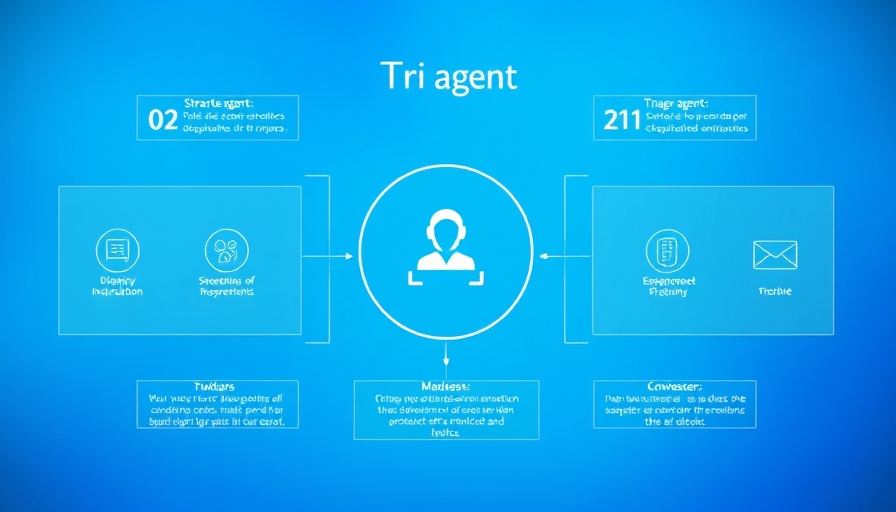
Revolutionizing AI Agents: OpenAI's Bold Move
OpenAI is taking a significant step towards the future of artificial intelligence with its latest developer tool, the Responses API. This innovative API promises to empower developers to create AI agents capable of executing tasks autonomously, by bringing the powerful capabilities of OpenAI’s language models into play. The launch of this API offers a new avenue for building more efficient, intelligent, and capable AI agents that can complete real-world tasks effectively.
The Power of Search Capabilities in AI Agents
At the core of the Responses API lies an incredible ability to search both internal datasets and the wider internet. This feature enables AI agents to source information on-demand, improving their functionality and accuracy significantly. By learning from the web, these agents can respond to queries with greater precision, a vital aspect for applications in customer service, data management, and legal assistance.
Benchmarking Excellence: Why the New Models Matter
OpenAI has used the SimpleQA benchmark to demonstrate the effectiveness of their new models. The GPT-4o search model achieved an impressive 90% on this benchmark, indicating a leap forward in AI accuracy. In contrast, the larger GPT-4.5 model scored only 63%, indicating that adding search capabilities is a game changer for AI functionality. Despite these advancements, OpenAI faces challenges, as even the improved models experience a 10% error rate. This prompts developers to approach their implementations with caution while pushing the boundaries of what AI can achieve.
OpenAI's Commitment to Develop Reliable AI
While the Responses API and the accompanying Agents SDK offer exciting tools, OpenAI acknowledges that these technologies are still in their infancy. The Computer-Using-Agent (CUA) model, utilized by these technologies, has been flagged for reliability issues. OpenAI cautions developers to expect some imperfect performance, signaling the need for further refinements as the capabilities evolve. However, providers can use these insights to minimize risks and drive improvements in their AI solutions.
Building the Future with Agentic AI
As more companies explore the development of AI agents, the Responses API could become a cornerstone of the future workforce, as anticipated by OpenAI CEO Sam Altman. The Increasing emphasis on ‘agentic AI’ highlights an industry trend towards autonomous systems that perform complex tasks, ultimately supporting productivity across various sectors. The race is on for developers to harness these tools, paving the way for autonomous agents that can revolutionize the workplace.
Collaborative Development: Next Steps for Developers
OpenAI's simultaneous release of the Agents SDK alongside the Responses API equips developers with the necessary framework to combine and manage multiple AI agents. This orchestration will be crucial in addressing sophisticated challenges that arise in various industries, ranging from healthcare to finance. Developers are encouraged to explore these tools thoroughly, ensuring they incorporate safeguards and monitoring capabilities as they innovate.
Conclusion: Embracing the Emerging AI Landscape
The launch of OpenAI's Responses API signals an exciting shift in the AI landscape, offering developers the opportunity to create powerful AI agents resembling human capabilities. As developers explore and implement these advancements, they must remain mindful of the evolving technology's challenges and limitations. For those interested in exploring the development of AI agents, now is the time to dive deeper into these tools, shaping the future of work with intelligence and efficiency.
 Add Row
Add Row  Add
Add 




 Add Row
Add Row  Add
Add 

Write A Comment